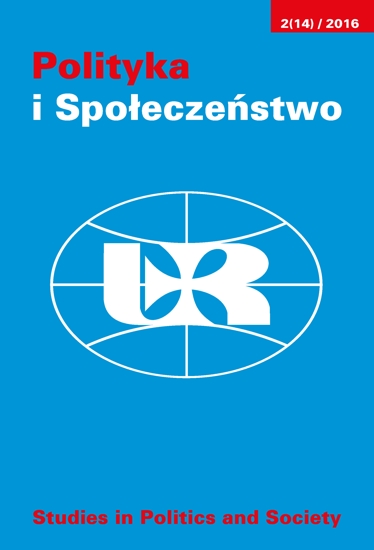Miejsce i rola Polskiego Związku Katolicko-Społecznego w rzeczywistości społeczno-politycznej lat osiemdziesiątych w Polsce – problem opozycyjności koncesjonowanej
DOI:
https://doi.org/10.15584/polispol.2016.1.12Słowa kluczowe:
Catholics, opposition, resistance, dissentAbstrakt
The main subject of the analysis was the activity and political concepts of lay Catholics who operated on the Polish political scene in the 1980s. This group of Catholic activists had been active in the public sphere for many years; in the 1980s, they organized themselves in a Polish Catholic-Social Union. This community was not among the most important political parties of the then political system; it was not a major factor stabilizing the system or a major source of change. Nevertheless, it did have a prominent feature – it had a parliamentary representation and participated in political practice; it also had a limited impact on political decisions. The main motive of their actions was to promote Catholic values in the public sphere, but also an attempt to create a Catholic party, in the right circumstances. Still, there is a disagreement, both among researchers and actors of the political scene of the time, about the clear-cut assessment of their political commitment. Nonetheless, it probably can be said that their attitudes are within the concept of semi-opposition and paralegal opposition, and, to some extent, in what we understand by the term of opposition of value systems.
Pobrania
Opublikowane
Jak cytować
Numer
Dział
Licencja

Utwór dostępny jest na licencji Creative Commons Uznanie autorstwa – Na tych samych warunkach 4.0 Miedzynarodowe.


